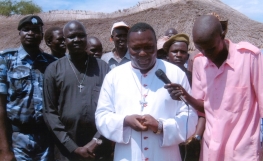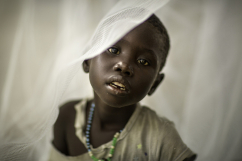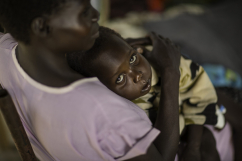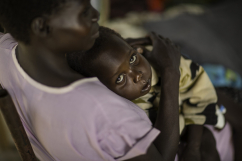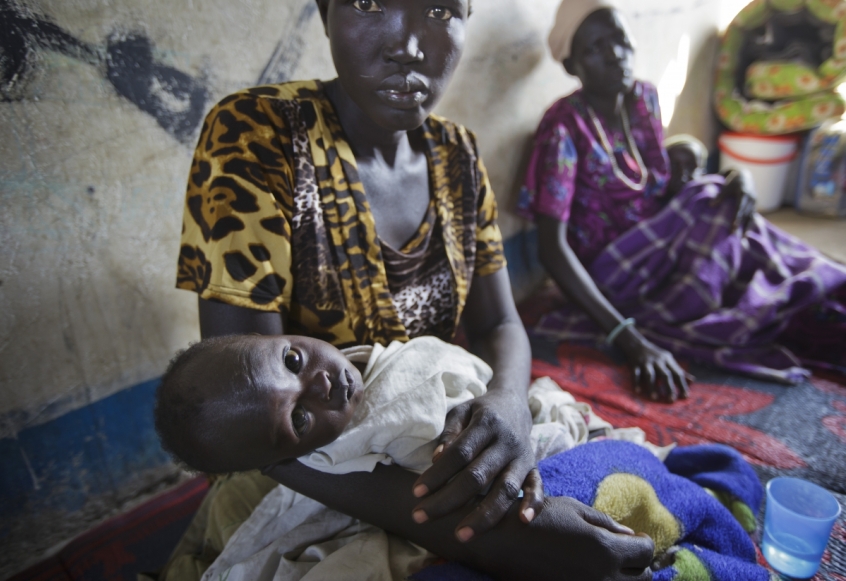
Millions of people remain in danger as the threat of famine continues in South Sudan.
Food insecurity as a result of the conflict that broke out in December last year, and heightened by flooding during the monsoon season, is now affecting four million civilians.
Displaced by the fighting, farmers have not been able to plant or harvest enough crops, and South Sudan has for some time now been labelled the most pressing humanitarian crisis in Africa.
The situation has not been officially declared a famine, however. The latest report from the Integrated Food Security Phase Classification (IPC) reveals that the number of people classified as being in a food crisis has fallen by 2.2 million since May, now at 1.5 million.
According to the IPC, humanitarian assistance across South Sudan has played a significant role in limiting the number of people without access to food.
In light of this report, however, aid agencies working in the region have warned that "even without a name hunger still kills".
"The threat of severe hunger still looms large," said Aimee Ansari, country director for CARE International in South Sudan.
"If current trends continue, around 2.5 million people will be living in severe hunger by early 2015."
The UN has estimated that up to 50,000 South Sudanese children could die in 2015, and South Sudan programme director for World Vision Perry Mansfield said there is still "very real need" throughout the war-torn nation.
"When we get distracted by language and trying to define a problem in abstract percentages we can forget that every night more people than the population of the city of Los Angeles go to sleep hungry," Mansfield said.
"Among them are children, pregnant women and the elderly, and it's tempting to think everything will be fine because we haven't reached famine conditions, but these people are in crisis and if we act early and act fast we can save lives."
Agencies are therefore calling for an immediate end to the fighting, and an increased humanitarian response to the crisis.
"South Sudan needs peace, it needs all parties to the conflict to stop fighting, it needs to allow aid workers and relief supplies unimpeded access – and it needs the world to care enough to step in now, before we see a repeat of the 260,000 dead in the 2011 Somalia famine, more of whom died before famine was even declared than after." Mansfield said.
"Hunger can be a slow-burning enemy. It can outlast violence and instability, and take a long time to claim its victims. The only way to counter it is to ensure stable and constant food availability as soon as possible."
Ansari said that South Sudan is entering into a "critical period" as the harvesting season begins in early October, and though fewer people are now in need, millions are still suffering in desperate circumstances.
"Let's put this good news in perspective: more than one in seven people here in South Sudan are still starving or facing severe malnutrition," she said.
"That's the equivalent of the entire cities of Birmingham and Glasgow living from day-to-day in a desperate search for food."










